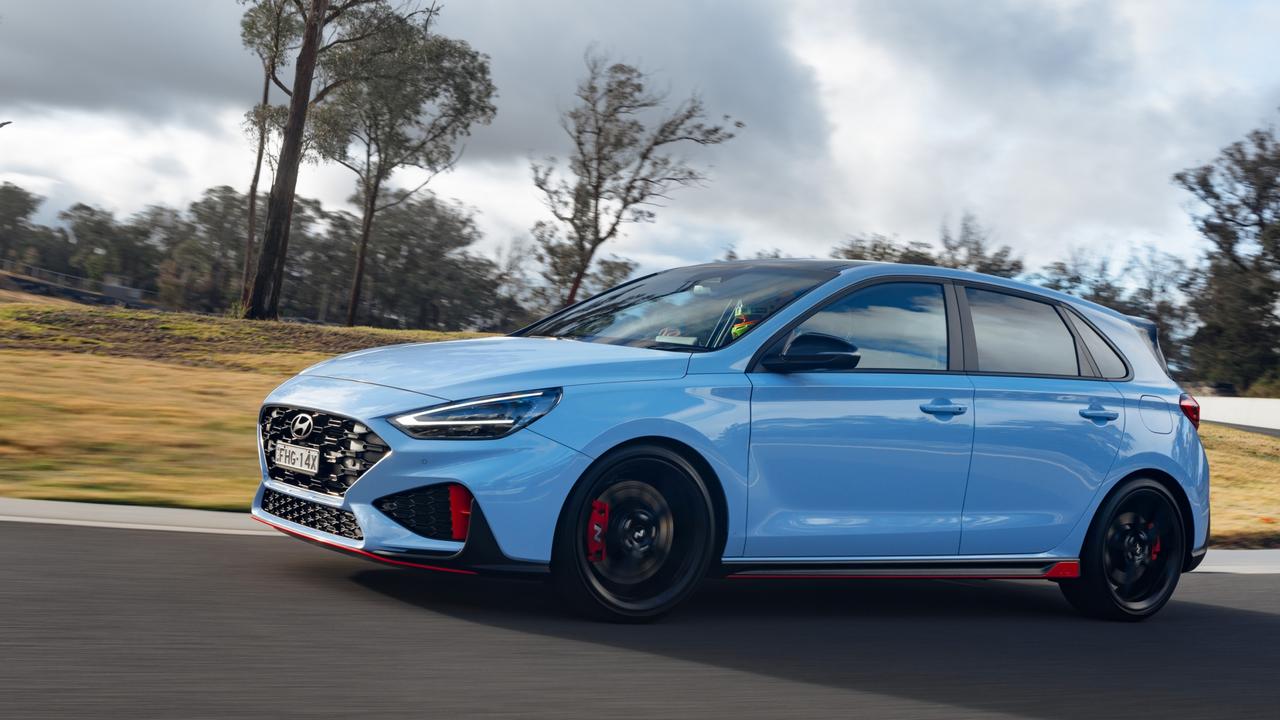Peugeot e-Partner electric van review
Peugeot’s e-Partner might be the smallest and most affordable electric van on the market, but it’s a tough business case
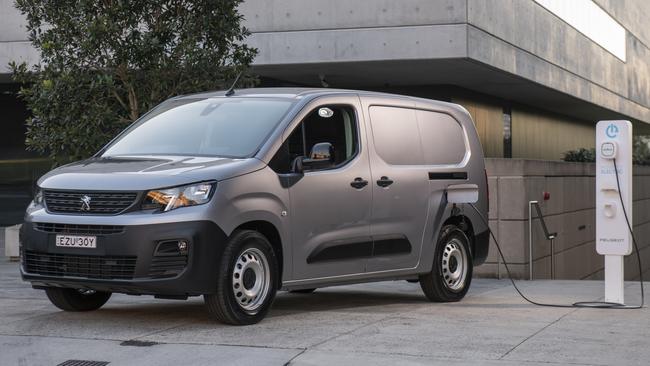
Business
Don't miss out on the headlines from Business. Followed categories will be added to My News.
Australia’s electric vehicle lethargy has been replaced by excitement.
Responsible for less than 1 per cent of the total market a few years ago, the EV market is running on adrenaline.
Tesla is now regularly in the top 10 selling vehicles nationally.
During our most recent test drive, trips to the charging station were suddenly a meet-and-greet session. Where they used to be shoo-in for a vacant park, public chargers are attracting a queue.
We spent some time at them this week courtesy of the Peugeot
e-Partner van which is about $64k drive-away.
With no domestic charging cord, the only option was to use the various stations. And with a range of about 260km, we had to make a few trips to the DC outlet.

No lone ranger
Sound expensive given the range? Many of the latest battery electric cars and SUVs have the capacity to travel more than 400km on one charge.
The e-Partner has a relatively small 50kWh lithium-ion battery.
Renault’s Kangoo has been around since 2020 but is no longer on sale. The new E-Tech model will arrive soon and comes with a bigger battery … but that’s still only 45kWh with a range of about 285km. The old ZE was about $55,000, so with improved ability we’d expect the updated version to command more coin.
The Ford E-Transit starts from just under $105,000 with a 68kWh power source and a range of about 300km.
LDV offers the e-Deliver 9 with 280km of range and a 88.55kWh battery with prices from about $116,000. Mercedes-Benz has the eVito Panel Van with a 260km capacity from its 60kWh battery with a drive-away price of $96,000.
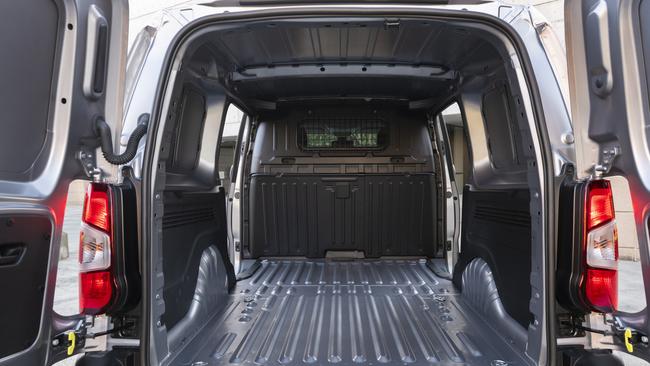
On the charge
Using a 50kW charger, the e-Partner added 200km of range in 49 minutes for a cost of $10.54. That was at 30 cents per kW/h which is close to what we pay at home.
Use a standard household power point and the battery would reach full charge from flat in 24 hours. Most buyers would opt for a single phase wallbox which achieves the same feat in just under 7.5 hours.
Only the larger Mode 3 wallbox charging cable is standard, and the genuine domestic charging cable is an eye-watering $1325 optional extra.
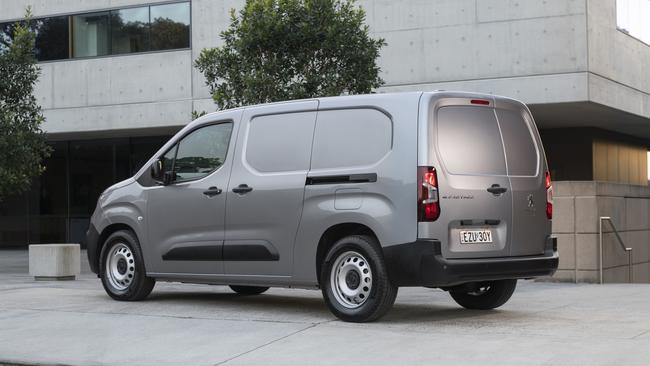
How was the drive?
Smooth and easy under acceleration, it’s not the typical electric performance from standstill. Smaller and lighter EVs often have a savage ability to sprint off the line but the
e-Partner is linear. The 0-100km/h sprint in 11.2 seconds is testament it’s no rocket ship.
The cabin design and features are reminiscent of the passenger cars with a small steering wheel, toggle gear shifter and a head-up driver instruments style.
Surprisingly nimble for a van, the 11.4m turning circle is reasonable given the long wheelbase model stretches 4753mm. Windy conditions can upset the balance, but quick changes in direction are well handled and it doesn’t feel too bulky.
There are three driving modes, with Eco dropping the output to 60kW to conserve energy, Normal is 80kW while power delivers the full 100kW.
Modern inclusions such as the eight-inch touchscreen with Apple CarPlay and Android Auto were good to see despite it being a commercial offering. Large side mirror and the 180-degree reversing mirror is vital as the central rear vision mirror is rendered useless.
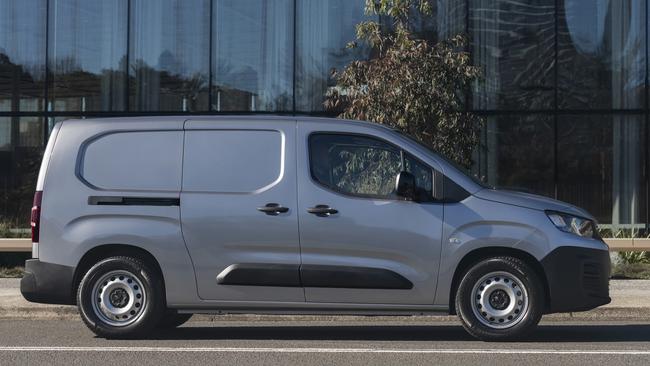
Would you buy one?
KEL: While I’m not in the market for a commercial van, it wasn’t as difficult to drive as I would have envisaged. Comparing it with other electric vans made the outlay more palatable but I still think you’d have to be really dedicated to the EV cause to have one.
GRANT: Given the internal combustion engine option starts from less than $45k, it’s a tough business case. Missing some key safety kit like radar cruise control, blind spot warning and rear cross traffic alert, while having a limited range mainly suited to metro areas, I’d still stick with the petrol option as the numbers don’t yet stack up.
Originally published as Peugeot e-Partner electric van review


